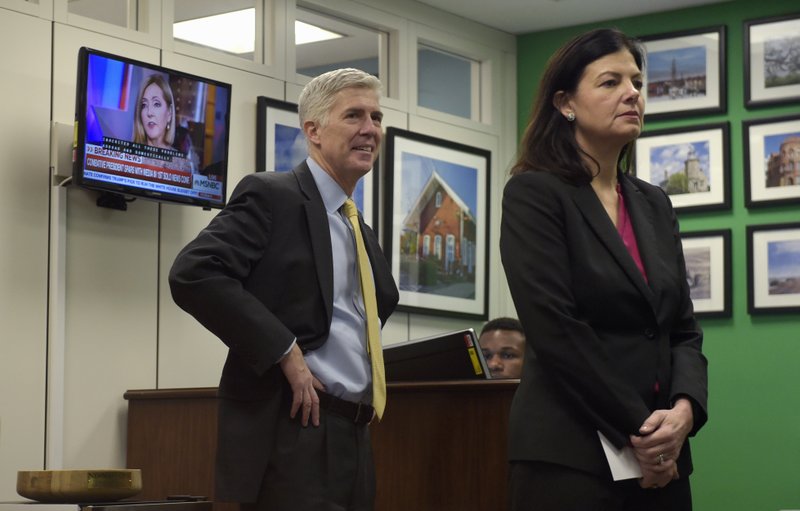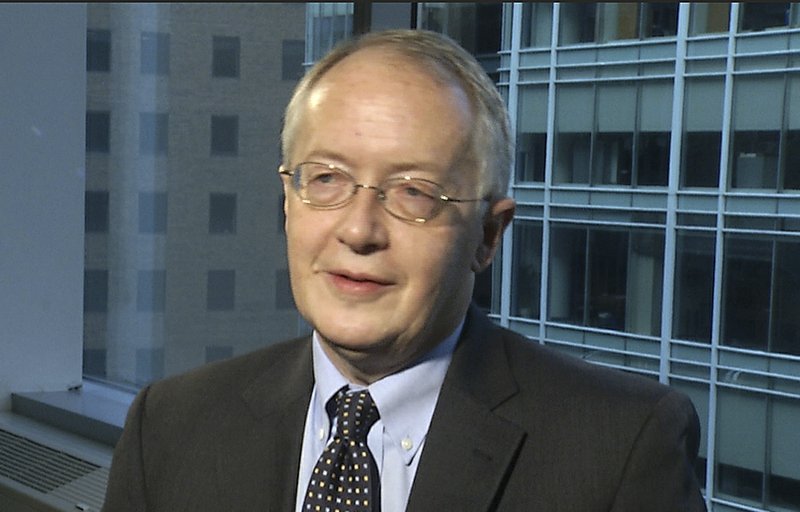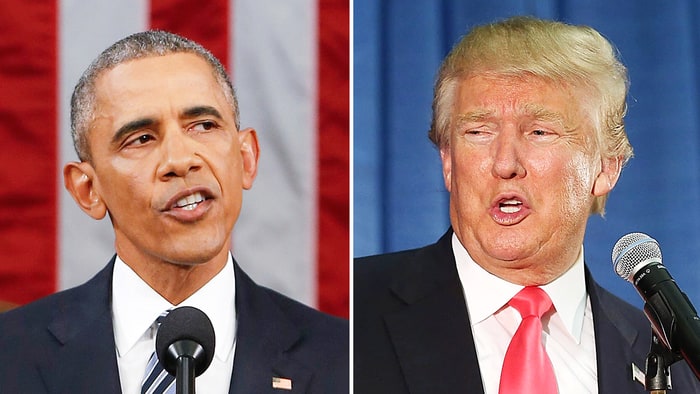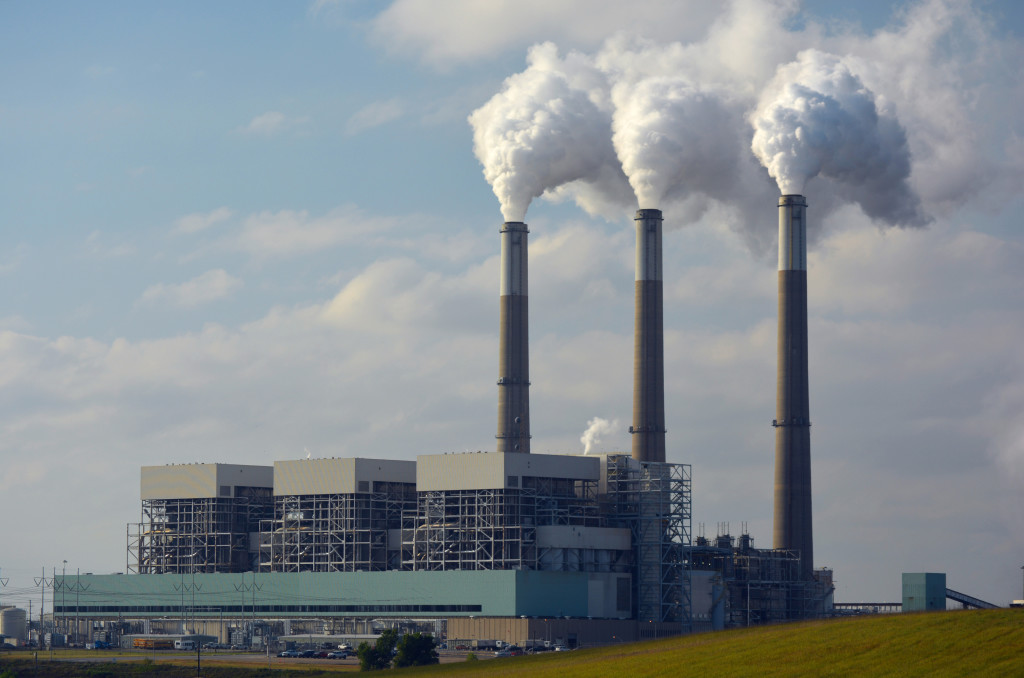Democrats seek Green New Deal to address climate change

Democrats including Rep. Alexandria Ocasio-Cortez of New York are calling for a Green New Deal intended to transform the U.S. economy to combat climate change and create thousands of jobs in renewable energy. The freshman lawmaker and veteran Sen. Ed Markey of Massachusetts are teaming up on the plan, which aims to eliminate the U.S. carbon footprint by 2030. A joint resolution drafted by Ocasio-Cortez and Markey sets a goal to meet “100 percent of the power demand in the United States through clean, renewable and zero-emission energy sources,” including dramatic increases in wind and solar power. A news conference at the Capitol is set for later Thursday as the lawmakers introduce the nonbinding resolution. While setting lofty goals, the plan does not explicitly call for eliminating the use of fossil fuels such as oil and natural gas, a nod to pragmatism that may disappoint some of Ocasio-Cortez’s strongest supporters. Even so, their Green New Deal goes far beyond the Clean Power Plan proposed by President Barack Obama. President Donald Trump has scrapped Obama’s plan, which imposed emissions limits on coal-fired power plants, as a job-killer. The Democrats are likely to meet resistance to their proposal in Congress, especially in the Republican-controlled Senate. Trump, who has expressed doubts about climate change, also is likely to oppose it. The announcement of the Green New Deal came as House Speaker Nancy Pelosi tapped eight Democrats to serve on a special committee to address climate change. Ocasio-Cortez was not among those selected for the panel, which is chaired by Rep. Kathy Castor, D-Fla. Ocasio-Cortez declined to answer Thursday when asked about the snub. Pelosi said in a statement that the climate committee will “spearhead Democrats’ work to develop innovative, effective solutions to prevent and reverse the climate crisis.” She made no mention of the Green New Deal. The resolution being introduced Thursday marks the first time Ocasio-Cortez and other lawmakers have attached legislative language to the Green New Deal, a concept that until now has been largely undefined other than as a call for urgent action to head off catastrophic climate change and create jobs. Several Democratic presidential hopefuls have embraced the idea of a Green New Deal without saying exactly what it means. Ocasio-Cortez said in a statement that the plan will create “unprecedented levels of prosperity and wealth for all while ensuring economic and environmental justice and security.” She calls for a “World War II-scale mobilization” that includes high-quality education and health care, clean air and water and safe, affordable housing. Answering critics who call the plan unrealistic, Ocasio-Cortez says that when President John F. Kennedy wanted to go to the moon by the end of the 1960s, “people said it was impossible.” She also cites Franklin D. Roosevelt’s New Deal, Lyndon B. Johnson’s Great Society and the interstate highway system begun under Dwight D. Eisenhower as examples of American know-how and capability. While focusing on renewable energy, Ocasio-Cortez said the plan would include existing nuclear power plants but block new nuclear plants. Nuclear power does not emit greenhouse gases, which contribute to global warming. The resolution does not include a price tag, but some Republicans predict it would cost in the trillions of dollars. They denounced the plan at House hearings on climate change on Wednesday. “If anyone thinks that decarbonizing America is going to save the planet, they’re delusional,” said Rep David McKinley, R-W.Va. The Green New Deal would be paid for “the same way we paid for the original New Deal, World War II, the bank bailouts, tax cuts for the rich and decades of war — with public money appropriated by Congress,” Ocasio-Cortez said. Government can take an equity stake in Green New Deal projects “so the public gets a return on its investment,” she said. Republished with permission from the Associated Press
Donald Trump steps up effort to dispute and distract on Russia

After weeks on the defensive, President Donald Trump has stepped up his efforts to dispute, downplay and distract from revelations stemming from the investigations into the Kremlin’s interference in last year’s election and possible Russian ties to his campaign associates. The White House says the real story is not about Russia — it’s about how Obama administration officials allegedly leaked and mishandled classified material about Americans. Trump and his aides have accused former officials of inappropriately disclosing — or “unmasking” — the names of Trump associates whose conversations were picked up by U.S. intelligences agencies. “Such amazing reporting on unmasking and the crooked scheme against us by @foxandfriends,” Trump tweeted Monday. ‘Spied on before nomination.’ The real story.” The White House has not pointed to any hard evidence to support such allegations, and instead has relied on media reports from some of the same publications Trump derides as “fake news.” The truth is buried somewhere in classified material that is illegal to disclose. Here’s a look at what the White House believes is the real story. __ THE FLYNN AFFAIR Trump fired national security adviser Michael Flynn following news reports that Flynn misled the White House about his contacts with Russia’s ambassador to the U.S. But the White House says the problem is that Flynn’s conversations were in the news at all. “The real story here is why are there so many illegal leaks coming out of Washington?” Trump tweeted after firing Flynn in February. The White House has called for investigations into the disclosure of multiple intercepted conversations that Flynn had with Ambassador Sergey Kislyak before the inauguration. The government routinely monitors the communications of foreign officials in the U.S. It’s illegal to publicly disclose such classified information. Officially, the White House said Flynn was forced to resign because he had given inaccurate descriptions of the discussions to Vice President Mike Pence and others in the White House. But Trump has continued to defend Flynn, suggesting he was only fired because information about his contacts came out in the media. “Michael Flynn, Gen. Flynn is a wonderful man,” Trump said. “I think he’s been treated very, very unfairly by the media.” ___ THE OBAMA ADMINISTRATION White House officials say some Obama holdovers are part of a so-called deep state out to tear Trump down. Last week, the White House latched onto a month-old television interview from an Obama administration official who said she encouraged congressional aides to gather as much information on Russia as possible before the inauguration. Evelyn Farkas, the former deputy assistant secretary of defense, said she feared that information “would disappear” after President Barack Obama left office. She was no longer in government at the time, having left the Pentagon about a year before the election. White House spokesman Sean Spicer called Farkas’ comments “devastating” and said they “raised serious concerns on whether or not there was an organized and widespread effort by the Obama administration to use and leak highly sensitive intelligence information for political purposes.” On Monday, Spicer suggested there should be more interest in a Bloomberg report in which anonymous U.S. officials said that Susan Rice, Obama’s national security adviser, asked for the identities of people related to Trump’s campaign and transition dozens of times. Spicer remarked that he was “somewhat intrigued by the lack of interest” in the Rice revelations. But he added: “I do think that it’s interesting, the level, or lack thereof, of interest in this subject.” As national security adviser, Rice would have regularly received intelligence reports and been able to request the identities of Americans whose communications were intercepted. ___ THE HILL WEIGHS IN The White House has embraced a top Republican’s assertion that information about Trump associates were improperly spread around the government in the final days of the Obama administration. It appears the White House played a role in helping House intelligence committee Chairman Devin Nunes, R-Calif., acquire some of that information. Nunes announced last week that he had seen intelligence reports showing that Trump aides’ communications were picked up through routine surveillance. But he said their identities may have been improperly revealed. The California congressman later said he viewed the reports at the White House. The White House contends that Nunes’ information — which has not been made public — validates Trump’s explosive claim that his predecessor wiretapped his New York skyscraper. Nunes has disputed that but still says he found the reports “troubling.” The White House’s apparent involvement in helping Nunes access the information has overshadowed what Trump officials contend are real concerns about how much information about Americans is disseminated in intelligence reports. Trump has asked the House and Senate intelligence committees to include the matter in their Russia investigations. ___ CAMPAIGN MODE Trump won the election, but thinks it’s his vanquished opponent whose ties to Russia should be investigated. Some of the White House’s allegations against Clinton stem from her four years as secretary of state, a role that gave her ample reasons to have frequent contacts with Russia. To deflect questions about Trump’s friendly rhetoric toward Russia, the White House points to the fact that Clinton was a central figure in the Obama administration’s attempt to “reset” relations with Moscow — an effort that crumbled after Vladimir Putin took back the presidency. “When you compare the two sides in terms of who’s actually engaging with Russia, trying to strengthen them, trying to act with them, trying to interact with them, it is night and day between our actions and her actions,” Spicer said. Rex Tillerson, Trump’s secretary of state, has deep ties to Russia from his time running ExxonMobil and cutting oil deals with Moscow. The White House has also tried to link Clinton to Russia’s purchase of a controlling stake in a mining company with operations in the U.S., arguing that she was responsible for “selling off one-fifth of our country’s uranium.” The Clinton-led State Department was among nine U.S. government agencies that had to approve the purchase of
Neil Gorsuch’s environment record: Neither a clear friend or foe

By the time a lawsuit over pollution from a nuclear weapons plant had reached Judge Neil Gorsuch, it had crawled through the courts for more than two decades, outliving some of the landowners who said the contamination destroyed their property values. That pace didn’t sit well with Gorsuch, a judge for the Denver-based 10th U.S. Circuit Court of Appeals, and now President Donald Trump’s nominee for the U.S. Supreme Court. “This long lingering litigation deserves to find resolution soon,” Gorsuch wrote for the panel, which sent the case back to a lower court to be handled “promptly” in favor of the landowners. Many conservation groups say Gorsuch is too conservative and too much like the man he would replace, the late Justice Antonin Scalia, to be considered a friend of the environment. But when it comes to his record on issues like pollution and environmental regulations, he can’t be painted as someone who always finds in favor of businesses, according to an Associated Press review of his rulings. In 2010, Gorsuch sided with the Environmental Protection Agency when a magnesium company challenged the EPA’s new interpretation of a rule regulating byproducts created by the company’s mining operation in Utah. The company argued the EPA couldn’t change the rule without public notice and comment. It said the byproducts were exempted under a previous interpretation, but Gorsuch said that interpretation was “at best” tentative, so the agency was free to change its mind and issue a new one. In 2015, he voted to uphold a Colorado law that requires 20 percent of electricity sold to consumers in the state to come from renewable sources. The law was challenged as a threat to out-of-state coal companies under a federal provision known as the dormant commerce clause, which is related to interstate commerce. Gorsuch conceded the law would hurt some energy producers. “But as far as we know, all fossil fuel producers in the area served by the grid will be hurt equally and all renewable energy producers in the area will be helped equally. If there’s any disproportionate adverse effect felt by out-of-state producers or any disproportionate advantage enjoyed by in-state producers, it hasn’t been explained to this court,” Gorsuch wrote. He has ruled against the EPA, too, as in a 2010 case in which he wrote for a majority of the court that the agency was wrong to classify a company’s land in New Mexico as Indian country when the company sought to obtain a permit for mining. If the land, which was not on a reservation, was classified as Indian country, the company would have needed to obtain a permit from the EPA rather than the state. More broadly, Patrick Gallagher, legal director of the Sierra Club, said Gorsuch would try to limit conservation groups’ access to the courts, which the judge has shown a willingness to do when organizations have sought to be heard in some cases involving the use of public lands. “His limited record, and I have to stress it is very limited, supports our position that he would limit access to the courts,” Gallagher said. Pat Parenteau, a professor at Vermont Law School, said he wouldn’t call Gorsuch a staunch ally of business, “but I think he’s certainly going to require the government to justify the costs of what they are imposing” through regulations. Parenteau said Gorsuch might frustrate those on either side of an issue, depending on the case, and noted that the judge is a fly fisherman, a hobby that often comes with a keen awareness of the importance of a healthy environment. A ruling that most worries some environmental groups came in a case that had nothing to do with the environment. In a much-noted immigration case, Gorsuch was critical of the longstanding Chevron doctrine, which gives deference to federal agencies’ interpretations of ambiguous statutes. Conservationists say that could be trouble for agencies like the EPA, which have the task of interpreting and implementing rules. “If you look back at the Supreme Court’s rulings involving Chevron, most of those are environmental cases,” said Billy Corriher, deputy director of legal progress at The Center for American Progress, a nonprofit liberal advocacy group. “And I think that’s because the EPA really enforces a lot of statutes that are pretty broad, it gives them broad authority to regulate certain pollution and it leaves it up to the experts to determine exactly what threshold of pollution is acceptable and what threshold is dangerous. Judge Gorsuch would want to get rid of that standard and basically allow judges to substitute their own judgment for the judgment of the agency experts.” As for the long-running class action lawsuit over nuclear waste at the Rocky Flats plant, the case is notable for its duration, and as Gorsuch observed, a legal twist that “put the defendants in a pickle.” The lawsuit was filed in 1990 by people who lived near the plant northwest of Denver, which had produced triggers for nuclear weapons during the Cold War. The plant was originally operated under a government contract by Dow Chemical Company and later Rockwell International Corporation. Federal authorities raided the facility in 1989, finding years of haphazard handling of plutonium waste that polluted the ground and water. Property values crashed, and nearby landowners sued. Gorsuch wrote that after the “titanic fifteen years” it took to reach a trial, the landowners won more than $900 million in damages and interest based on a federal law, a verdict that was thrown out on appeal. The issue was whether the pollution should have been considered a “nuclear incident” covered by the federal law, which the companies’ lawyers argued it should not. An appeals court panel vacated the award. “But that’s when things took an interesting turn,” Gorsuch wrote in 2015. “Trying their hand at a little judicial jiu-jitsu, the plaintiffs sought to turn the defendants’ victory against them.” The landowners argued that once the federal law was out of consideration, the companies were liable under Colorado
Official: Donald Trump wants to slash EPA workforce, budget

The former head of President Donald Trump‘s transition team at the Environmental Protection Agency said Thursday he expects the new administration to seek significant budget and staff cuts. Myron Ebell said in an interview with The Associated Press that Trump is likely to seek significant reductions to the agency’s workforce — currently about 15,000 employees nationwide. Ebell, who left the transition team last week, declined to discuss specific numbers of EPA staff that could be targeted for pink slips. Asked what he would personally like to see, however, Ebell said slashing the agency’s size by about half would be a good start. “Let’s aim for half and see how it works out, and then maybe we’ll want to go further,” said Ebell, who has returned to his position as director of the Center for Energy and Environment at the Competitive Enterprise Institute. The conservative think tank in Washington opposes “global-warming alarmism” and receives a portion of its funding from corporations and individuals that profit from the continued burning of fossil fuels. Ebell has long been a vocal critic of federal environmental regulations, which he claims are strangling the nation’s economy and impeding job growth. Though he kept specific recommendations he made to the White House confidential, Ebell suggested it was reasonable to expect the president to seek a cut of about $1 billion from the EPA’s roughly $8 billion annual budget. About half the EPA’s budget passes through to state and local governments for infrastructure projects and environmental cleanup efforts that Ebell said Trump supports. He said the cuts would likely fall on the remaining half the agency’s budget, which pays for agency operations and environmental enforcement. “President Trump said during the campaign that he would like to abolish the EPA, or ‘leave a little bit,’” Ebell said. “I think the administration is likely to start proposing cuts to the 15,000 staff, because the fact is that a huge amount of the work of the EPA is actually done by state agencies. It’s not clear why so many employees are needed at the federal level.” EPA has been roiled by turmoil during its first week under Trump, as members of the transition team issued what it has described as a temporary freeze on all contract approvals and grant awards. Trump’s representatives also instituted a media blackout, clamping down on media releases, social media posts and other external communications issued by career staff. AP reported Wednesday that Trump’s political appointees have been scrutinizing reports and data published on the agency’s websites for potential removal, especially details of scientific evidence showing that the Earth’s climate is warming and man-made carbon emissions are to blame. Ebell said Tuesday the purge is necessary because EPA’s leaders under President Barack Obama “politicized” global warming and allowed activists within the agency to publish “junk science.” “Undoubtedly the federal government has been staffed with scientists who believe the global-warming alarmist agenda,” said Ebell, whose academic credentials are in philosophy and political theory. Asked about Ebell’s comments, former Republican EPA Administrator William K. Reilly cautioned calm, saying that often transition teams have little to do with what eventually happens in an agency. “I would tell the EPA staff that, in my experience, transition teams often have zero influence,” said Reilly, who ran the environmental agency under Republican President George H.W. Bush. “They shouldn’t be taken that seriously. They’re just ideologues. They don’t work for and are not even known to the incoming cabinet.” Trump’s nominee for EPA administrator, Scott Pruitt, said during his Senate confirmation hearing last week that he disagreed with past statements by the president alleging that global warming is a hoax perpetrated by the Chinese to harm U.S. economic competitiveness. But like Trump, Pruitt has a long history of publicly questioning the validity of climate science and has pledged to dismantle Obama-era regulations aimed at curbing carbon emissions from coal-fired power plants. Earlier this month, NASA and the National Oceanic and Atmospheric Administration issued a joint statement affirming that 2016 was officially the hottest year in recorded history, breaking prior records set in 2015 and 2014. Studies show the Greenland and Antarctic ice sheets have decreased in mass, while the world’s oceans have risen on average nearly 7 inches in the last century. “Many studies have shown just how strong that level of consensus in the scientific community is that climate change is happening, it’s caused by humans and the impacts will be significant,” said Keith Seitter, the head of the American Meteorological Society who has a doctorate in geophysics. “It’s not junk science.” Ebell insists studies showing climate change poses a serious risk to human civilization are bunk. Though he now accepts global temperatures are increasing, he claims that the warming will be beneficial for most Americans — providing milder winters and longer growing seasons. “The fact is that in modern society we have the technology to deal with environmental challenges, and that’s why people live in Phoenix,” Ebell said. “Because warm is good, as long as we have air conditioning.” Republished with permission of The Associated Press.
Barack Obama environmental legacy at stake as GOP, industry align

The Obama administration will leave behind a host of disputed recent actions and unfinished business on the environment – from shelved energy leases and blocked mining projects to pollution restrictions and decisions on hundreds of potentially imperiled species. Republicans and business groups emboldened by Donald Trump‘s victory are gearing up to reverse many of the administration’s signature environmental moves, particularly those made since the election. The outcome could determine whether eight years of Democratic rule in the White House leaves a lasting mark on the environment or quickly fades. Already environmental groups and their Democratic allies are raising alarms over Trump’s choice of Oklahoma Attorney General Scott Pruitt to head the Environmental Protection Agency, Texas Gov. Rick Perry for energy secretary and Thursday’s announcement of Montana Rep. Ryan Zinke for interior secretary. All three are industry proponents who have lined up against Obama on environmental issues and expressed doubts about the science behind climate change. “Obama may be in danger of losing his entire legacy,” said Rep. Rob Bishop, chairman of the House Natural Resources Committee, who pointed to “excessive” administration moves on the environment that attracted a Republican backlash. “From the top, the president (Trump) on down, there is a commitment to making change, and the stars are aligning to see that change take place,” the Utah Republican said. Reversing course from the Obama years could happen with the stroke of a pen for a moratorium on new coal sales and recent mining claim withdrawals in Montana, Oregon and Washington. Trump already has said he would knock down the coal moratorium. Other administration actions will be harder to unravel, legal and industry experts said. Those include pollution restrictions for coal-burning power plants, blocked oil leases in the Arctic and limitations on methane emissions to reduce greenhouse gases from the oil and gas industry, which would require congressional action or the reopening of lengthy bureaucratic processes. Yet with the GOP in firm control of Congress, the White House and likely the Supreme Court, “they are going to have an easier time getting their way” on environmental issues, said Mark Squillace, a professor of natural resource law at the University of Colorado. “It is easier to break things than it is to create them. … On some level, Trump wants to come in and break things Obama has created,” he said. The Obama administration’s scramble to finalize key environmental policies in its last days obscures the fact that many of those actions were in the works for years. Nevertheless, the industry wish list for Trump and the next Congress has grown with each recent announcement. Senior administration officials reject allegations that they’re ignoring public sentiment in a rush to get disputed and controversial items over the finish line before their power expires. As evidence, officials pointed to the yearslong process that resulted in the methane rule and the millions of public comments received prior to shelving future energy lease sales in the Arctic. It would not make sense for that work to “just be put in a drawer” because of the election, Bureau of Land Management Deputy Director Linda Lance argued. “There are good moderate proposals that have very much taken into account the concerns of the public. We would hope the work that’s done will be respected and continue,” she said. Among the most powerful legislative instruments Republicans promise to wield to overturn recent moves by the current administration is the Congressional Review Act. The 1996 law, passed as part of then-Speaker Newt Gingrich’s “Contract with America,” allows lawmakers to overturn rules recently issued by a previous president with approval from both chambers of Congress and the consent of the new president. It would apply to rules submitted since May 30, the nonpartisan Congressional Research Service has said. It’s been used successfully only once, to kill a 2000 rule on workplace ergonomics from the Clinton administration. Prominent Republicans including Sen. John Barrasso of Wyoming promised to use the law when the administration last month finalized the methane rule, which would restrict companies from burning off excess natural gas, a contributor to climate change. Barrasso chairs the Senate Subcommittee on Energy and Natural Resources. He said the rule would drive oil and natural gas companies off public lands and showed the Obama administration was “unwilling to listen to the message that the American people sent” with Trump’s election. Meanwhile, conservation groups that frequently prodded the Obama administration to be more aggressive on the environment now find themselves at risk of being marginalized. In recent years those groups complained that timelines for greenhouse gas reductions were too long. They accused the administration of underfunding agencies that oversee endangered species protections. And they went to court to challenge sales of federally owned coal with no regard for future pollution. Activists acknowledged they will soon need to shift their focus to the Republicans, who they predict will open more public lands to oil and gas drilling, mining and logging and will attempt to dismantle the Endangered Species Act. “We have to play defense now, and that’s what we’re going to do. We’re expecting full-on trench warfare,” said Jeremy Nichols, climate program director for the nonprofit environmental group WildEarth Guardians. Republished with permission of The Associated Press.
From Donald Trump and his new team, mixed signals on climate change

He brushed off climate change as a Chinese hoax, then called it the real deal and finally declared that “nobody really knows.” Donald Trump is sending mixed signals on whether or how he will try to slow Earth’s warming temperatures and rising sea levels. Since he was elected, Trump has met with prominent climate activists Al Gore and Leonardo DiCaprio. He’s suggested his daughter Ivanka, a close adviser, has a particular interest in the issue and could be his envoy. But he has also tapped oil industry champions for his Cabinet, men who say they’re determined to reverse President Barack Obama‘s efforts to rein in emissions. The pushback has already started. Environmentalists were outraged by the Trump transition team’s decision to ask the Energy Department for a list of staffers who worked on climate change – a request the administration refused out of concern it could be used to try to purge climate-change believers. Trump’s team later said the questionnaire “was not authorized” and that the person responsible had been “counseled.” Yet if Trump’s record on climate change is complex, in his administration, he won’t be the only one. Two days after Trump was elected, oil giant Exxon Mobil tweeted a declaration of support for the Paris deal, a global emissions-cutting pact that marks the biggest step the world has taken to date on climate. Weeks later, Trump tapped Exxon CEO Rex Tillerson to be secretary of state, a position putting Tillerson at the helm of U.S. efforts to implement – or scuttle – the Paris deal. Though environmentalists often vilify Exxon, Tillerson almost surely signed off personally on the tweet, said individuals familiar with Exxon’s structure and operations, who weren’t authorized to comment publicly and requested anonymity. And under Tillerson’s leadership, Exxon has started planning for climate change and even voiced support for a carbon tax. So, in a strange twist, Trump’s selection of an oil magnate for chief diplomat has been reassurance to some that the next administration may not herald the end of climate change efforts that burgeoned under Obama. “Tillerson is probably the least-bad choice among a lot of bad options,” said Andrew Logan of Ceres, a coalition of institutional investors concerned about climate change. “Tillerson could be a moderating influence on Trump, keeping things from being as disastrous as they otherwise might be.” Democratic attorneys general have been suing Exxon over allegations the company for decades concealed its own scientific research showing climate change was occurring. Tillerson, in public comments, has explicitly acknowledged climate change and said the risks could be “significant,” but has suggested it’s a low priority. “There are much more pressing priorities that we as a human being race and society need to deal with,” Tillerson said in 2012, citing people living in poverty who he said would benefit from cheap energy. Other Trump picks are openly hostile to calls to act on climate. His choice to run the Environmental Protection Agency – responsible for domestic emissions-cutting measures – is Oklahoma Attorney General Scott Pruitt, a vocal denier of climate change science. The vast majority of peer-reviewed studies and climate scientists agree the planet is warming, mostly due to man-made sources. But Pruitt has sued the EPA repeatedly to stop its climate agenda, including Obama’s sweeping power plant rules. And Trump’s nominee to run the Energy Department, former Gov. Rick Perry, also has questioned climate science while working to promote coal-fired power in Texas. Though Perry, like Tillerson and Pruitt, has close ties to the oil industry, he also oversaw the growth of renewable power in Texas, which became the lead wind-energy producer while he was governor. Perry in 2012 famously called for abolishing the Energy Department, which plays a major role funding clean energy projects. Under Obama, the U.S. has dramatically ramped up production of renewable energy from sources like solar, in part through Energy Department grants. Amy Myers Jaffe, an energy policy expert at the University of California-Davis, said Trump’s administration is likely to embrace Tillerson’s view that engineering and innovation, not government, are the solution. She said the falling cost of clean energy and desire of companies to appear climate-friendly are likely to produce those changes anyway. “The common denominator looking at Trump’s appointments so far is that there’s clearly a sentiment that the energy sector is overregulated, and therefore we could probably expect a rollback,” Jaffe said. “But I think we’re getting to the point where some of these technologies can stand on their own.” Yet those looking to Trump for clarity won’t find it – at least not yet. In a television interview last week, Trump said he was still “studying” the Paris pact to determine whether to pull the U.S. out, as he threatened during the campaign. And asked about the science of climate change, Trump demurred. “I’m still open-minded,” Trump said. “Nobody really knows.” Republished with permission of The Associated Press.
Alabama Environmental Director to Donald Trump: Rein in Barack Obama’s EPA

Alabama’s top environmental official is urging President-Elect Donald Trump to rein in President Barack Obama‘s environment regulations. Lance LeFleur, Director of the Alabama Department of Environmental Management, co-signed a letter last week with environmental leaders from four states — Nebraska, North Carolina, North Dakota and West Virginia — urging Trump a to rein in the Environmental Protection Agency in order to “move America forward.” The letter requests the Trump transition team to consider four things: Return environmental leadership to the states. Place a moratorium on currently proposed and new federal regulations. Work with state governors and environmental directors to eliminate federal overreach. End secret policy-making by Washington insiders. On the campaign trail, Trump pledged to “dismantle” the EPA. “We’re going to have little tidbits left but we’re going to get most of it out,” he said at one point. “Environmental Protection, what they do is a disgrace,” he said at another. His statements have not gone unnoticed by the letter’s environmental leaders. “Statements you made during the campaign give us confidence that we can achieve your goals by working together, as these are goals that are also important to the citizens of our states.” Read the full letter to Trump below:
Daniel Sutter: Another way to protect the environment

Libertarian presidential candidate Gary Johnson is polling very well among millennials, recently receiving 29 percent support among voters aged 18-34. Nobel Prize-winning economist Paul Krugman doubted in the New York Times that millennials knew about Libertarian Party positions like using private litigation instead of Environmental Protection Agency (EPA) regulation. Although Professor Krugman finds a market-based environmental policy dubious, I think it could be more effective than EPA regulation. To see why, we need to consider why pollution is a problem. Economists identify the problem with pollution as an externality, meaning that firms or individuals are able to dispose of wastes as pollution into the air or water without paying for the resulting damage. Competition ensures that prices reflect costs and guide behavior, but prices only reflect the costs which firms must pay. Prices of manufactured goods consequently reflect the costs of labor, raw materials and electricity, but not the damage from the firms’ pollution. Therefore, prices send an incorrect signal to consumers and firms. The same problem would essentially arise if businesses got to use any resource for free, for instance, if a printing business got free paper. Why do businesses not have to pay to dump pollution into the environment? This is due to a property rights problem. We agree that we all have a right to breathe clean air, but cannot sell the air we “own” to the factory. We can sell, and firms must buy, our labor in the market, which results in wages and salaries. The lack of a market for pollution leads prices of manufactured goods to be wrong. The fates of different species further demonstrate the role of property rights in environmental problems. Whales and buffalo in the wild, effectively owned by no one, were nearly hunted to extinction. By contrast, 30 million cattle are killed each year in the U.S. without threatening the species with extinction. Philosophers can debate if people should kill them for food, but the effect of property rights is clear. Ranchers ensure cattle they own get food and water, are protected from predators, and are harvested sustainably. How might property rights protect air and water? We have some historical evidence. In England, the Crown owned fishing rights and granted them to anglers’ clubs. As water pollution started harming fish, anglers’ clubs could take legal action against polluters, and have successfully used the courts to protect water quality. Courts in the U.S. recognized pollution as a tort starting in the 1800s, allowing people to win suits against factories for air and water pollution. Once litigation establishes that a specific pollutant causes harm, firms know they must bargain with the persons harmed by pollution. Economists Roger Meiners and Bruce Yandle found that paper mills in Wisconsin compensated downstream property owners, essentially “buying” the right to pollute the river. Property rights, litigation, and negotiation make firms pay for pollution, just as for labor. Prices of goods and services will then reflect environmental harm. Markets, and not bureaucrats, can then balance protecting nature against productive activity, which is the attraction of the approach. Professor Krugman is skeptical of average citizens suing corporations over pollution, and not without reason. The movie “A Civil Action” details the challenges and enormous cost of litigation over groundwater contamination in Woburn, Massachusetts. Deep-pocketed defendants often draw out court cases in hopes that plaintiffs run out of money. And polluters can create judgment-proof shell companies to ensure that victims never collect compensation. But I view these as problems with our legal system, not problems with a market approach to environmental protection. EPA enforcement of the Clean Air and Clean Water Acts has significantly improved environmental quality while allowing continued economic growth. Regulation has worked in the past, but critics believe that the EPA today is pursing dubious risks like fine particulate matter and carbon dioxide at enormous cost and with little legal justification. Alternatives to government regulation exist, and perhaps we should now explore greater reliance on markets to protect nature. ••• Daniel Sutter is the Charles G. Koch Professor of Economics with the Manuel H. Johnson Center for Political Economy at Troy University and host of Econversations on TrojanVision. The opinions expressed in this column are the author’s alone and do not necessarily reflect the views of Troy University.
Updates from the 1st presidential debate

The Latest on the first of three presidential debates between Democrat Hillary Clinton and Republican Donald Trump (all times EDT): 10:45 p.m. Both candidates concluded the first presidential debate by saying they will accept the outcome if the other wins. Hillary Clinton spoke directly to viewers and said, “It’s not about us, it’s about you.” Donald Trump initially dodged the same question, saying he would make a “seriously troubled” America “great again.” He added: “I’m going to be able to do it. I don’t believe Hillary Clinton will.” But Trump finished his answer by saying that if Clinton wins, “I will absolutely support her.” ___ 10:43 p.m. Hillary Clinton is punching back at Donald Trump’s assertions that she doesn’t have the “stamina” to be president. Trump has questioned whether Clinton has the physical fitness to be president and he repeated the criticism to her directly during the debate. Clinton’s response? Trump shouldn’t talk about stamina until he’s tried out the busy schedule she kept up as secretary of state. Trump didn’t answer moderator Lester Holt’s original question about his past comments that Clinton doesn’t have the “presidential look.” Clinton suggested the remarks were about gender, and she reminded the crowd of Trump’s past comments calling women “pigs” and other derogatory names. ___ 10:42 p.m. Donald Trump says NATO needs to “go into the Middle East with us” to combat the Islamic State group. And he is taking credit for NATO focusing resources on combating terrorism. In fact, the alliance agreed in July to contribute aircraft and conduct training in Iraq and has increased intelligence coordination there. And NATO set up an anti-terrorism program in 2004 — years before Trump criticized them as a presidential candidate. Earlier this year, Trump criticized NATO for not focusing on terrorism. He said that afterward, he saw an article reporting that NATO was opening a new, major anti-terrorism division. He said Tuesday that NATO’s action was “largely because of what I was saying, and my criticism of NATO.” ___ 10:40 p.m. Donald Trump is avoiding a specific declaration on how he would use nuclear weapons if he’s elected president. The Republican nominee said during the first presidential debate that he “would not do first strike” because “once the nuclear alternative happens, it’s over.” That statement suggests he would not authorize a nuclear attack unless the U.S. was struck first. But in the same answer Trump said he “can’t take anything off the table.” He mentioned adversary nations such as North Korea and Iran. President Barack Obama has considered changing existing policy to state clearly that the United States would not deploy nuclear weapons without first being attacked by nuclear weapons. But he met resistance and has elected not to make such a shift. ___ 10:38 p.m. Hillary Clinton is accusing Donald Trump of being too easily provoked to keep the United States from going to war — perhaps even one involving nuclear weapons. Trump says: “I have much better judgment than she does. I have much better temperament.” That drew laughs from some in the debate crowd, and prompted Clinton to exclaim: “Woo! OK!” Clinton then pivoted to policy, defending the U.S.-led war in Afghanistan. Clinton said Iran was “weeks away” from a nuclear bomb when she became secretary of state — and says the Obama administration thwarted that progress. She continued that Trump didn’t have “good judgment or the right temperament” because he could take the country to war over small issues, like being mocked on Twitter. ___ 10:35 p.m. Donald Trump is continuing to insist he opposed the Iraq War before the U.S. invasion despite evidence to the contrary. Trump says during the debate that he “did not support the war in Iraq,” calling that charge “mainstream media nonsense.” But there is no evidence Trump expressed public opposition to the war before the U.S. invaded. Trump was asked in September 2002 whether he supported a potential Iraq invasion in an interview with Howard Stern. Trump briefly hesitated, then responded: “Yeah, I guess so.” Presented with the comment during the debate, Trump responds: “I said very lightly, I don’t know, maybe, who knows.” He’s also telling reporters to call Fox News host Sean Hannity to confirm private conversations he said they had about the war. Hannity is a top Trump supporter. Clinton voted in favor of the invasion in 2002 while she was a New York senator. She has since said it was a mistake. ___ 10:27 p.m. Donald Trump is interrupting the moderator of the first presidential debate to insist he has the best temperament for the office. Trump repeatedly made the assertion after clashing with moderator Lester Holt over his early support for the Iraq War. Then he segued to his temperament. “I think my strongest asset by far is my temperament,” Trump said. “I know how to win.” Clinton and her allies have repeatedly hit Trump over his temper and inability to take criticism. ___ 10:23 p.m. Hillary Clinton says one key to fighting terrorism in the United States is working closely with Muslims living here. Clinton says Donald Trump has “consistently insulted Muslims abroad, Muslims at home.” She says Muslim people can provide information that law enforcement may not be able to obtain anyplace else. Both candidates were asked to explain how they would combat terrorism in the U.S. Clinton says her plan includes an intelligence surge to obtain “every scrap of information” and to “do everything we can to vacuum up intelligence from Europe, from the Middle East.” ___ 10:20 p.m. Hillary Clinton says defeating the Islamic State group and taking out its leaders would be a top priority as president. Clinton says she’s hopeful the Islamic State group would be pushed out of Iraq by the end of the year. She says the U.S. could then help its allies “squeeze” the terrorist group in Syria. Clinton says she would do everything possible to take out the group’s leaders, and make that one of her administration’s organizing principles
U.S. agency orders corrective action after gas pipeline spill

Fuel supplies in at least five states are threatened by a gasoline pipeline spill in Alabama, and the U.S. Department of Transportation has ordered the company responsible to take corrective action before the fuel starts flowing again. Colonial Pipeline Co. must conduct testing and analysis on the failed section of the pipeline, according to the department’s Pipeline and Hazardous Materials Safety Agency, which is investigating the spill in rural Alabama. The company has acknowledged that between 252,000 gallons and 336,000 gallons of gasoline leaked from a pipeline near Helena, Alabama, since the spill was first detected Sept. 9. It’s unclear when the spill actually started. The pipeline section that failed runs from Mississippi to Atlanta. The agency said the spill is “within an unusually sensitive ecological area” and it ordered Colonial to take action “to protect the public, property and the environment from potential hazards.” “The department will remain on site to carry out its investigation, and make sure the operator is taking the necessary steps to prevent any future incidents,” agency administrator Marie Therese Dominguez said in a statement. In a statement Saturday, the Alpharetta, Georgia-based company said that repair work had begun in an effort to return the pipeline to service “as rapidly and safely as possible.” The company said it is shipping as much gasoline as possible on its distillate mainline, or Line 2, in order to mitigate the impact of the pipeline that has been shut down. Colonial earlier said most of the leaked gasoline is contained in a retention pond near the city of Helena and there’s no public safety concern. In response to the shutdown, the governors in Alabama, Georgia and Tennessee announced they would lift restrictions on the number of hours that truck drivers delivering fuel can work, in hopes of preventing fuel shortages. Governors can suspend federal transportation regulations during emergencies. A spokeswoman for Alabama Gov. Robert Bentley said Friday that he’s in communication with pipeline company officials along with state and federal officials assisting at the spill location. Georgia Gov. Nathan Deal said he was confident his order lifting restrictions for drivers would help. “We are confident these measures will help ensure Georgians’ uninterrupted access to motor fuel until Alabama’s pipeline is fixed,” Deal said in a statement. Tennessee Gov. Bill Haslam said his order was a precautionary measure. “We are not currently seeing any widespread unavailability of petroleum in Tennessee,” Haslam said in a statement. “We urge Tennesseans to maintain their normal fuel purchasing and driving patterns to help prevent any potential impacts on our fuel supply while the pipeline undergoes repairs.” The U.S. Environmental Protection Agency waived requirements this week that metro areas with air quality issues in Georgia and Tennessee use a cleaner-burning type of gasoline during the summer months. That requirement of the Clean Air Act expired at midnight Thursday. Republished with permission of the Associated Press.
Alabama among 6 states accounting for nearly half the drop in coal use by U.S. power sector

Steam coal consumption for U.S. power generation fell 29% from its peak of 1,045 million short tons (MMst) in 2007, to an estimated 739 MMst in 2015, the Energy Information Administration reports. Consumption fell in nearly every state, including Alabama over that period. “In the U.S., 97% of all steam coal is used to generate electricity,” according to EIA. “With little or no growth in electricity sales in most states between 2007 and 2015, coal use for electricity generation is closely related to coal’s share of total generation.” In the Southeast, coal consumption in Georgia, North Carolina, and Alabama in 2015 was half the level it was in 2007. Electric power plants in these states not only reduced their coal consumption, but they also increased their natural gas consumption. States with the largest declines were concentrated in the Midwest and Southeast, with six states — Alabama, Georgia, Indiana, North Carolina, Ohio, and Pennsylvania — in these regions accounting for nearly half of the national decline.
Conservation advocates file lawsuit against Army Corps of Engineers over Black Warrior River mine

Conservation groups have filed a lawsuit challenging the U.S. Army Corps of Engineers‘ approval of a permit for a new mine on the Black Warrior River. Black Warrior Riverkeeper and Defenders of Wildlife filed the lawsuit Tuesday in Birmingham federal court. It accuses the Corps of Engineers of failing to fully weigh the effect on endangered wildlife and water quality by the filling of streams and wetlands. It also says the agency failed to consider the cumulative effect of the multiple mines located along the Warrior River. The river twists through coal-rich areas of the state According to the lawsuit, the Corps of Engineers granted the permit last year to Global Met Coal Corp. for Black Creek Mine. Republished with permission of The Associated Press.


